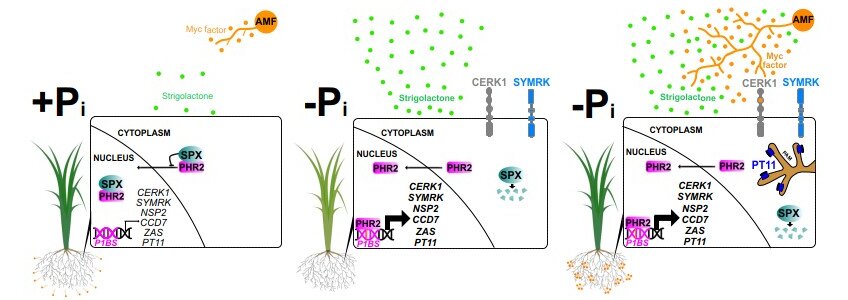
HKBU research reveals the regulatory mechanism of phosphate starvation response in enabling arbuscular mycorrhiza symbiosis
Previous News


Fig. Model depicting regulation of AM symbiosis by PHR2
Prof Zhang Jianhua, Chair Professor of the Department of Biology, and his research group in collaboration with Technical University of Munich, Germany, has recently published a paper in Nature Communication (Das et al. 2022). The research team found out how arbuscular mycorrhiza (AM) symbiosis is enhanced under phosphorus deficient condition in rice. AM is important for ecosystem health and functioning as the fungi critically support plant performance by providing essential mineral nutrients, particularly the poorly accessible phosphate, in exchange for organic carbon. AM symbioses also improve plant stress resistance and soil stability, making AM a promising addition to sustainable agricultural practices. AM fungi colonize the inside of roots and this is promoted at low but inhibited at high plant phosphate status.
The research team observed that a major transcriptional regulator of phosphate starvation responses in rice, phosphate starvation response 2 (phr2), regulates AM. Root colonization of phr2 mutants is drastically reduced, and phr2 is required for root colonization, mycorrhizal phosphate uptake, and yield increase in field soil. phr2 promotes AM by targeting genes required for pre-contact signaling, root colonization, and AM function. Thus, this important symbiosis is directly wired to the phr2-controlled plant phosphate starvation response.
Previous News



